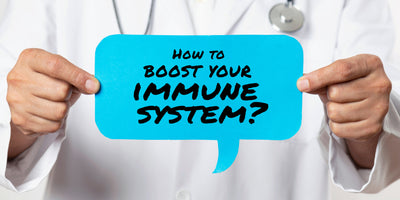
Exposure to Toxins in the Absence of Astaxanthin's Protection
Introduction
Astaxanthin, a naturally occurring carotenoid renowned for its potent antioxidant properties, has become a buzzword in the health and wellness community. Predominantly found in marine environments, particularly in algae, salmon, trout, krill, shrimp, and crayfish, it imparts a distinctive red or pink color to these organisms. This powerful compound has been extensively studied for its myriad health benefits, ranging from improving skin health to enhancing immune response and even showing potential in disease prevention. But beyond these benefits, Astaxanthin's role as a defender against environmental toxins stands out as a critical aspect of its contribution to human health. The modern world exposes us to a barrage of pollutants and harmful substances, from the air we breathe to the food we consume. In this context, Astaxanthin's protective capabilities are not just beneficial but perhaps crucial.
However, the absence of Astaxanthin in our diets can leave a gap in our body's natural defense system. The question then arises: what are the consequences of facing environmental toxins without the shield of Astaxanthin? This article aims to address this gap, exploring the potential risks and health impacts of toxin exposure when Astaxanthin is not present to offer its protective benefits. We will investigate how toxins affect our bodies, the specific roles Astaxanthin plays in neutralising these effects, and the potential dangers we might encounter in its absence. By understanding these dynamics, readers can better appreciate the importance of incorporating Astaxanthin into their diets and recognise the broader significance of antioxidants in maintaining overall health in a world increasingly laden with environmental challenges.
Understanding Astaxanthin: What It Is and Its Health Benefits
Astaxanthin, a member of the carotenoid family, is a naturally occurring pigment responsible for the vibrant red and pink hues seen in many marine organisms. It is synthesised primarily by microalgae and then accumulates in higher concentrations in organisms that consume these algae, such as shrimp, krill, and certain fish species. What makes Astaxanthin uniquely compelling is its exceptional antioxidant capacity, which surpasses many other antioxidants in both potency and effect. Antioxidants are crucial in combating oxidative stress, a condition caused by an imbalance between free radicals and antioxidants in your body. This imbalance can lead to cell and tissue damage, contributing to various health issues and accelerating the aging process. Astaxanthin's ability to neutralise free radicals, therefore, positions it as a significant player in the promotion of overall health and longevity.
The health benefits of Astaxanthin are broad and significant. Studies have shown that it can support cardiovascular health by improving blood flow and reducing oxidative stress in the blood vessels. In the realm of skin care, its potent antioxidant properties help protect the skin from the harmful effects of UV radiation, thereby reducing signs of aging and possibly lowering skin cancer risk. Additionally, Astaxanthin has been linked to improved joint health, thanks to its anti-inflammatory properties, making it beneficial for individuals suffering from conditions like arthritis. Furthermore, there's growing evidence that Astaxanthin can enhance athletic performance by improving muscle recovery and endurance. Beyond these benefits, researchers are exploring its potential in supporting eye health, boosting the immune system, and even playing a role in neuroprotective activities, which could be pivotal in the treatment and prevention of neurodegenerative diseases.
The Nature of Environmental Toxins
Environmental toxins, a ubiquitous concern in our modern world, come in various forms, including air pollutants, water contaminants, and toxins in our food supply. Airborne toxins like particulate matter, nitrogen oxides, and sulfur dioxide, primarily emitted from industrial and vehicular sources, pose significant health risks. These pollutants can penetrate deep into the lungs and bloodstream, leading to respiratory and cardiovascular diseases. Waterborne toxins, often a result of industrial waste, agricultural runoff, and improper waste disposal, can include heavy metals like lead and mercury, pesticides, and other harmful chemicals. Consuming or being exposed to these contaminated water sources can lead to severe health issues, including neurological disorders, kidney damage, and impaired immune function. Food toxins, such as pesticides, herbicides, and certain food additives, accumulate in our bodies over time, potentially leading to chronic health problems.
The health impacts of these environmental toxins are profound and far-reaching. Short-term exposure can cause immediate symptoms like headaches, nausea, and respiratory distress, while long-term exposure can lead to more severe consequences. Chronic health conditions such as asthma, heart disease, and various forms of cancer have been linked to prolonged exposure to environmental toxins. These toxins can also exacerbate existing health conditions and disproportionately affect vulnerable populations like children, the elderly, and those with pre-existing health conditions. Moreover, the cumulative effect of exposure to multiple toxins can lead to a phenomenon known as 'bioaccumulation,' where toxins build up in the body faster than they can be eliminated, causing long-term health complications.
The Protective Role of Astaxanthin Against Toxins
Astaxanthin's role in mitigating the effects of environmental toxins is rooted in its potent antioxidant properties. This compound is particularly effective in quenching free radicals - unstable molecules that can cause oxidative damage to cells and tissues. By neutralising these harmful molecules, Astaxanthin helps protect the body's cells from the oxidative stress induced by environmental pollutants. This protection is critical in reducing the risk of chronic diseases associated with toxin exposure, such as cancer, heart disease, and neurodegenerative disorders. Scientific studies have demonstrated how Astaxanthin can enhance the body's detoxification processes, aiding in the elimination of harmful substances. Its ability to cross the blood-brain barrier also suggests a protective effect against neurotoxicity caused by environmental contaminants.
The comparative advantage of Astaxanthin over other antioxidants lies in its unique molecular structure, which allows it to span the entire cell membrane, providing comprehensive protection. This feature not only helps in neutralising free radicals both inside and outside the cell membrane but also prevents the peroxidation of lipids, which is crucial for maintaining cell integrity. Studies have shown that Astaxanthin's antioxidant activity is significantly stronger than that of other well-known antioxidants like Vitamin C, Vitamin E, and beta-carotene. Moreover, its anti-inflammatory properties complement its antioxidant effects, further enhancing its protective role against environmental toxins. These combined actions make Astaxanthin a highly effective natural agent in safeguarding the body against the diverse array of toxins present in our environment.
Risks of Toxin Exposure in the Absence of Astaxanthin
In the absence of Astaxanthin, the body's ability to combat the deleterious effects of environmental toxins is significantly diminished. Without this potent antioxidant, cells are more susceptible to oxidative stress caused by free radicals. This heightened vulnerability can lead to accelerated cellular aging, DNA damage, and the disruption of cellular functions. Such oxidative damage is a key contributor to the development of chronic diseases, including various types of cancer, heart disease, and neurodegenerative disorders like Alzheimer's and Parkinson's disease. The risk is particularly pronounced in heavily polluted environments where the body is constantly bombarded with a mix of toxins that can overwhelm the body's natural defense systems.
The impact of toxin exposure in the absence of adequate antioxidant protection is not limited to chronic diseases. It can also exacerbate acute conditions and lead to a decline in overall health and well-being. For example, without the protective effects of Astaxanthin, individuals may experience increased inflammation, leading to conditions such as asthma, allergic reactions, and other respiratory issues. There is also the potential for heightened sensitivity to toxins, resulting in more severe and frequent allergic reactions and other immediate health responses. Furthermore, the absence of Astaxanthin's protection could compromise the immune system, making the body more susceptible to infections and slowing down the recovery process from illnesses and injuries.
Understanding the Body’s Natural Defense Mechanisms
The human body has a complex and sophisticated array of natural defense mechanisms to protect against environmental toxins. These include physical barriers like skin and mucous membranes, detoxifying organs such as the liver and kidneys, and the immune system's various components. The liver plays a crucial role in neutralising toxins, breaking them down into less harmful substances that can be excreted. The kidneys filter blood, removing waste and excess substances from the body. Additionally, the immune system helps to identify and eliminate foreign substances that may pose a threat to health. These systems work in concert to maintain homeostasis and protect the body from harm.
However, these natural defense mechanisms have their limitations. They can be overwhelmed by excessive exposure to environmental toxins or when the body lacks sufficient nutrients, including antioxidants, to support their functioning. This is where external support, such as dietary antioxidants like Astaxanthin, becomes essential. Antioxidants help to bolster the body's defenses by neutralising free radicals and reducing oxidative stress, thereby aiding the natural detoxification processes. The absence of adequate antioxidant support not only hampers these processes but also increases the risk of toxin-related damage and disease.
Diet and Lifestyle: Boosting Natural Detoxification

A balanced diet rich in antioxidants is crucial for supporting the body's natural detoxification processes. Foods high in antioxidants, such as fruits, vegetables, nuts, seeds, and whole grains, should be staples in the diet. Specifically, foods rich in Astaxanthin, like wild-caught salmon, trout, krill, and shrimp, can provide this powerful antioxidant directly. Additionally, other antioxidant-rich foods like berries, leafy greens, and green tea can offer a broad spectrum of protective compounds. Incorporating these foods into the diet can help mitigate the effects of environmental toxins and support overall health.
Lifestyle choices also play a significant role in enhancing the body's ability to detoxify. Regular exercise, adequate hydration, and sufficient sleep are foundational to maintaining optimal health and supporting the body's natural detoxification systems. Exercise, for instance, boosts circulation and helps in the elimination of toxins through sweat. Hydration aids kidney function and the elimination of waste products, while sleep is crucial for the regeneration and repair of the body’s systems. Avoiding exposure to toxins where possible, such as reducing the use of plastic, opting for organic foods, and avoiding smoking and excessive alcohol consumption, are also vital steps in minimising the body’s toxin load.
Alternatives to Astaxanthin: Other Detoxifying Agents
While Astaxanthin is a potent antioxidant, there are other antioxidants and detoxifying agents that can also play a vital role in protecting against environmental toxins. Vitamins C and E are well-known antioxidants that help neutralise free radicals and support the immune system. Selenium, a trace mineral, plays a crucial role in the production of antioxidant enzymes. Curcumin, the active ingredient in turmeric, offers significant anti-inflammatory and antioxidant properties. Green tea is rich in catechins, a type of antioxidant that has been shown to enhance liver function and support detoxification processes.
Including a variety of these antioxidants in the diet can provide a comprehensive approach to combating environmental toxins. Each of these compounds offers unique benefits and works synergistically to provide broader protection. For instance, flavonoids found in fruits and vegetables can complement Astaxanthin's effects, offering an additional layer of defense. It’s important to have a diversified diet rich in these antioxidants to ensure a well-rounded approach to detoxification and overall health.
Recommendations for Avoiding Toxin Exposure
Minimising exposure to environmental toxins is a crucial step in maintaining health and well-being. Simple yet effective strategies can be employed in daily life to reduce this exposure. Opting for organic produce can decrease the ingestion of pesticides and herbicides. Using natural cleaning and personal care products can reduce the exposure to harmful chemicals found in many conventional products. Additionally, improving indoor air quality through plants and air purifiers can significantly reduce the inhalation of airborne toxins.
Being mindful of the water quality and using water filters can help in reducing exposure to waterborne toxins. It's also beneficial to reduce the use of plastic, especially in food storage and cooking, to avoid leaching of chemicals like BPA. Choosing sustainable and responsibly sourced seafood can minimise the intake of mercury and other heavy metals. Taking these proactive measures can substantially decrease the overall toxic burden on the body.
Summary
Astaxanthin's Importance:- A potent antioxidant found in marine organisms.
- Protects against oxidative stress and environmental toxins.
- Various forms including air pollutants, water contaminants, and food toxins.
- Cause short-term and long-term health issues, including chronic diseases.
- Neutralises free radicals and reduces oxidative stress.
- Superior to other antioxidants due to its molecular structure and comprehensive cellular protection.
- Increased susceptibility to oxidative damage and chronic diseases.
- Exacerbated acute conditions and weakened immune response.
- Involves liver, kidneys, and the immune system.
- Can be overwhelmed without sufficient antioxidant support.
- Emphasis on antioxidant-rich foods and Astaxanthin sources.
- Importance of exercise, hydration, and sleep in toxin elimination.
- Other antioxidants like Vitamins C and E, Selenium, Curcumin, and Green Tea.
- A diversified diet for comprehensive protection.
- Strategies include choosing organic produce, natural products, and improving indoor air quality.
- Using water filters and reducing plastic usage.
- Combining diet, lifestyle, and environmental awareness for long-term well-being.
- Not just relying on one compound but adopting a comprehensive health strategy.






